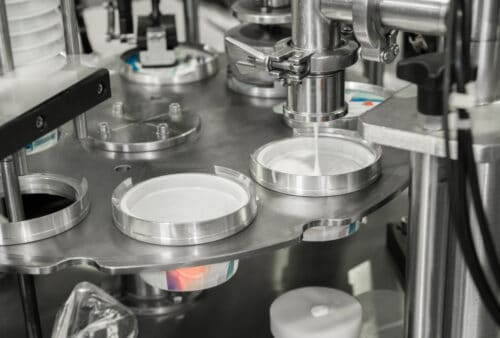According to the USDA, US dairy production stood at 152,356 million pounds as of August 2022. If you are one of the producers in this market, you might be looking for a manufacturer and wholesale distributor of couplings, PVC hoses, dairy valves, and fittings. The search ends at Seal Fast, Inc.
Advantages of Valves and Hoses for Industrial Dairy Products
Valves and hoses in industrial dairy products offer the following advantages:
- Integrate several valves and hoses into a single element that can fasten the dairy processing.
- Valves facilitate the installation of the processing line because it only involves no more joints between two points.
- Less human intervention is needed, which means lesser monitoring of the operation of the processing.
How We Can Help Your Industrial Dairy Production
PVC hoses and fittings are often used in dairy applications because milk and other dairy products resist corrosion. When selecting a dairy hose, valve, or fitting, it is essential to consider the material.
Valve
We offer a variety of valves utilized for plant isolation service, which prevents flow past specific points in piped systems.
Fittings
You can be confident that our fittings are connected at points of maximum turbulence, not near stagnant pockets. We can prevent solids from accumulating in cavities or pockets around pipe connections.
Pipelines
Our pipelines are clean and free from longitudinal grooving inside and outside. Among the features of our pipelines are smoothness, free of defects, straightness, a cylindrical shape, and uniform thickness.
FAQs for Industrial Dairy Products
What are the common materials used in dairy hoses?
Dairy valves control the flow of milk or other liquids in a dairy processing system. The three common dairy valves are butterfly, ball, and check valves. Butterfly valves are the most common type of valve used in dairy processing, as they provide good flow control and are relatively easy to maintain. Seal Fast, Inc. offers all these kinds of valves on our website.
How often should dairy hoses be replaced?
Recommended replacement of dairy hoses should be at least every six months, depending on the frequency of usage and how well they are maintained. Hoses used frequently or subject to high temperatures or abrasive materials may need to be replaced more regularly.
How can I extend the life of my dairy hoses?
You can do several things to extend the life of your dairy hoses, such as avoiding using them with hot liquids, cleaning them regularly, and storing them properly when they’re not in use. You can also invest in higher-quality hoses for extended use.
We’re the experts in dairy fittings and valves
It’s not always easy to find the right supplier for the products you need, but it pays off in dividends. We’ve been a manufacturer and wholesale distributor of couplings, PVC hoses, dairy valves, and fittings for Industrial Dairy Products since 1965. With our extensive industry knowledge and commitment to quality customer service, we can help you find the best solution for your business – no matter how big or small it may be. Contact us today to get started!



